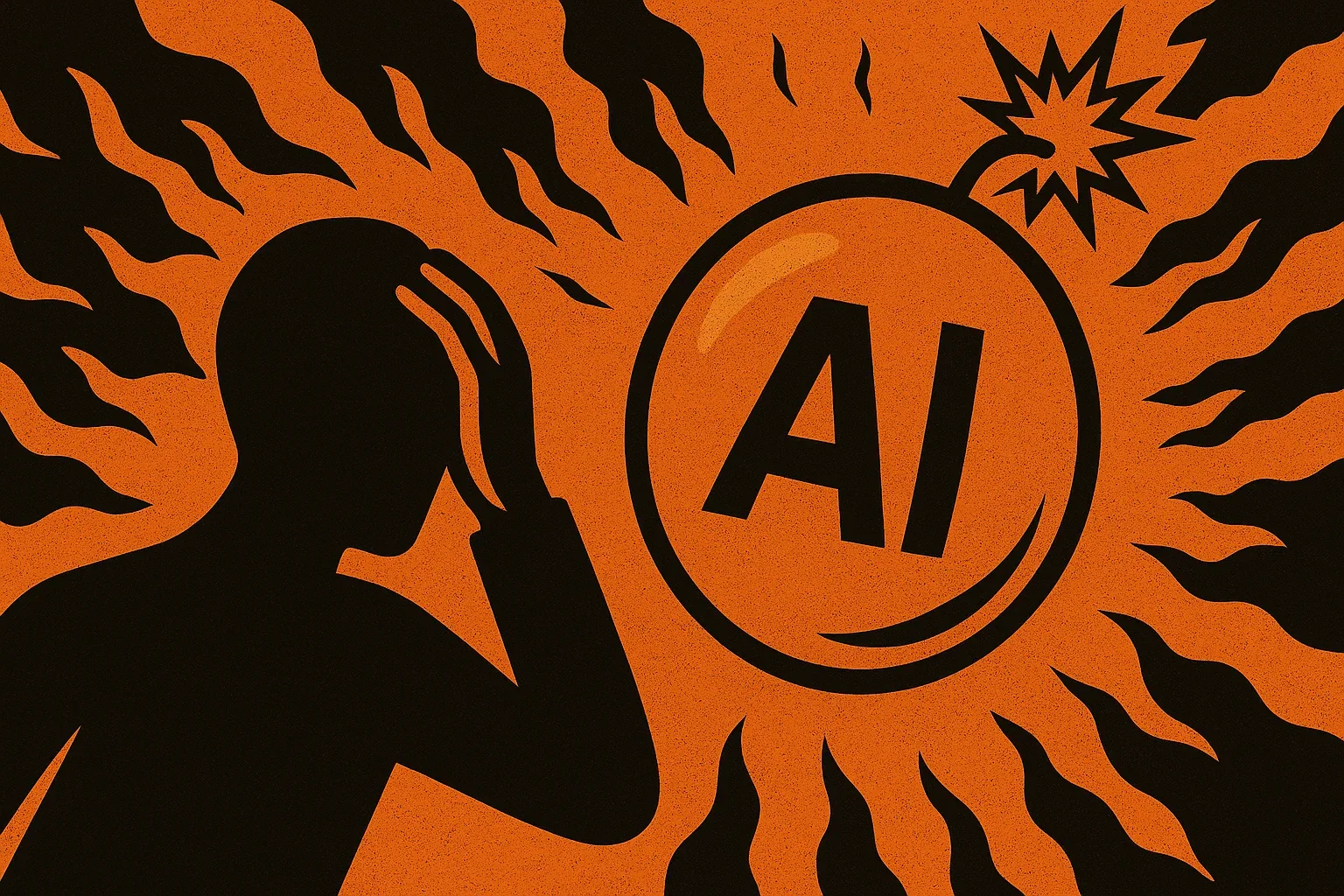Since 2023, AI has gone from a technical idea to a global fever that has swept the media and markets. It seems like the "gold of the 21st century" sought by companies, investors, and countries. But behind this glamor hides an economic and psychological bubble similar to what happened in the "internet bubble" crisis twenty years ago-a combination of fear, greed, and overpromising.
In just two years, the valuations of companies like OpenAI swelled from $7 to more than $500 billion, and NVIDIA's value jumped to become the first chip company in history to surpass $1 trillion.
In the financial world, experts call it the "anxiety economy." Investments in generative AI exceeded $120 billion in 2025, double what they were in 2023. Companies that add the words "AI-powered" to their description immediately rise in value, even if they don't offer an actual product.
But AI has also become a terminological bubble; the media talks about "sentient intelligence" and "machines that think," even though scientific development is still limited. Even recent releases such as GPT-5 have not made a real breakthrough and have fueled more marketing than reality.
Companies like Microsoft, Amazon, and Google control 68% of the global cloud infrastructure, while NVIDIA alone holds more than 90% of the AI processor market. They don't sell innovation, they sell tools.
Funding in this sector is becoming circular; big companies are funding projects that use their own services, so growth looks more "paper" than real. For example, Microsoft is funding companies based on Azure, inflating revenue numbers only on the surface-a self-funding bubble.
Most smart companies are not profitable; OpenAI spends more than it earns, and most valuations are based on belief in innovation rather than financial reality. This is why the IMF has warned that this boom is reminiscent of the dot-com bubble, and could soon burst with the first shake in investor confidence.
By late 2025, the signs were starting to show; downloads of apps like ChatGPT dropped by 8%, and investors were gradually withdrawing their money." Even the Bank of England noted the "potential for a sharp correction in the markets due to the AI bubble.
But even if the bubble bursts, the story won't end here. Those with real assets - companies that build chips, digital infrastructures, or practical solutions - will survive.
The bursting of the bubble will not end AI, but will return it to its natural size: a useful tool, not a myth. Just as Google and Amazon emerged from the ashes of the dot-com bubble, new, more mature and pragmatic companies will emerge from the dust of this wave.
Thus, the AI bubble is neither a complete delusion nor an absolute revolution, but a necessary stage in the evolution of technology-a brief chaos paving the way for a longer consciousness. The future belongs to intelligence...but to sober intelligence, not one obsessed with quick glory.
To view the video and read the full analytical paper, please scroll down.
The AI bubble: When intelligence becomes an investment on the verge of bursting
The real intelligence is not in the algorithms, but in our ability to distinguish illusion from revolution.

Comments